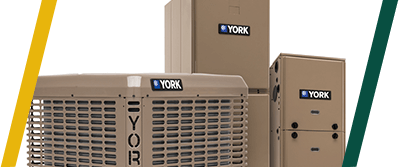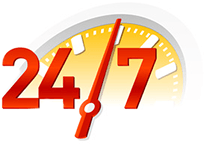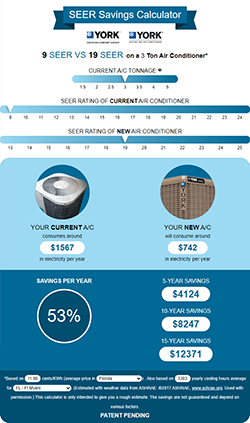
Your air conditioner has two primary jobs: cooling your home and keeping it comfortable. A common myth about AC sizing is that a big air conditioner will accomplish both tasks more effectively than a smaller system. After all, a bigger, more powerful system means more cool air, faster, right? While there’s truth to this, a larger AC does not always equal more comfort. In fact, an AC that is too big – or too small – for your home can cause several problems down the road.
We’ll address some of these problems later in this article. First, let’s cover some basics about AC sizing.
AC Sizing Basics: Cooling Capacity, BTU, and Tonnage
Glance at any air conditioner’s spec sheet and you’ll find a reference to its size. No, we’re not referring to the weight or measurements of the physical unit. Instead, the “size” we’re talking about is the AC unit’s cooling capacity, measured in tons or BTU.
What is cooling capacity?
Cooling capacity reveals how much cooling the air conditioner can provide. So, when say you want a big air conditioner, you’re really saying you want a unit with lots of cooling capacity. Every home requires a different amount of cooling—a different size of AC—to regulate the temperature and keep its occupants comfortable. Because of this, an air conditioner’s size a.k.a. cooling capacity is its most important specification—more important than the brand, features, or even the efficiency rating.
Tons & BTU
The most common way to measure cooling capacity is in tons. But not every HVAC manufacturer or contractor lists the size of their AC units in tons. Some use BTU (or BTU/hour). One ton is equal to 12,000 BTU/hour. So, a 2.5-ton unit has the same cooling capacity as a 30,000 BTU unit.
BTU stands for British Thermal Unit, a unit of heat energy. One BTU is the amount of heat required to raise the temperature of one pound of water by one degree Fahrenheit. In HVAC, we use BTU/hour to talk about how much heat an air conditioner can remove from a home in one hour’s time. Meaning, a 2.5-ton unit can remove 30,000 BTU of heat from a space in one hour.
AC Size vs. Efficiency Rating
Let’s talk briefly about the difference between an air conditioner’s size and its efficiency rating. Size, as we just established, is measured in tons, while efficiency is measured in SEER (or SEER2, for air conditioners purchased after January 1, 2023). Both ratings have important implications for your electric bill. With SEER, the higher the number, the less electricity your air conditioner consumes to cool your home. If you buy an 18 SEER2 air conditioner, it’s going to take about 35% less electricity to run compared to a 14 SEER unit, all other things being equal. (Our website offers a free calculator where you can easily compare air conditioners of different SEER and SEER2 ratings.)
However, with size, a bigger number does not necessarily mean better results. Even though a 4-ton unit has more cooling capacity than a 3-ton unit, this does not necessarily mean the larger unit will benefit your electric bill—or provide more comfort, for that matter.
The Importance of Having the Right Size AC for Your Home
If your air conditioner is too big or too small for your home, there will be consequences for your comfort and your electric bill.
Problems with an Oversized Air Conditioner
The main issue with an air conditioner that is too large is that it cools too quickly. So, the unit will cycle on and off more often than it should. This is called short cycling. Short cycling results in higher electricity costs, temperature swings, and uneven cooling. Plus, it causes more wear and tear on components and ductwork, leading to breakdowns and shortening your AC’s lifespan.
Short cycling can also cause humidity issues. Besides cooling, your air conditioner is also responsible for regulating the humidity in your home. If the unit is not able to run long enough, it will not be able to remove enough humidity. A humid environment is ideal for promoting mold and mildew growth.
Problems with an Undersized Air Conditioner
If your air conditioner is too small, it will take longer to cool your home. It may not be able to keep up with the demand for cooling, running constantly without ever reaching your thermostat’s set point. This leads to an uncomfortable home with a high electric bill.
How Do You Know What Size Air Conditioner Your Home Needs?
In HVAC lingo, your home’s cooling load is how much cooling capacity it needs. An HVAC contractor or energy rater must calculate a home or building’s cooling load to determine the proper size of air conditioner required. Cooling load is based on several factors, including your home’s square footage, the number of windows, the number of occupants, and more.
BTU & Tonnage Calculator
On our website, we offer a free tool to calculate your AC’s size based on the following factors:
- 23 BTU per square foot
- 200 BTU per window
- 200 BTU per occupant
Please note: the purpose of the BTU and Tonnage Calculator is only to give a rough estimate. You should not rely on it, or on any general rules of thumb about AC sizing, as the basis for your AC purchasing decision. Always consult your HVAC dealer for their recommendation.
Manual J Load Calculation
A thorough load calculation takes several factors into account, including:
- Square footage
- Number of occupants
- Number of windows
- Size and location of windows
- Direction your house faces
- Air leakage
- The state of your ductwork
…and the list continues.
The accepted national standard load calculation procedure is the Manual J, developed by the Air Conditioning Contractors of America (ACCA). Normally, a Manual J load calculation is performed in new construction. When replacing an AC in an existing home, unless there were considerable renovations or other changes to the structure that would affect the cooling load, an HVAC contractor may not consider a detailed load calculation necessary.
So, is a Bigger AC Unit Better for Your Home?
We’ve busted the myth that a bigger air conditioner is better in general than a smaller one. But to know for certain what is the best size for your home, you’ll need to ask your HVAC dealer.
When you ask a dealer for a quote on a new AC system, be sure to describe any cooling problems you’ve experienced with your current air conditioner. Does the unit cycle on and off frequently? Are there sections of your home that never seem to get cool enough? Do you have a problem with mold or mildew? Among others, these problems may indicate that your current air conditioner is the wrong size.
A bigger AC unit might be better for your home after all.
Fill Out the Form Below for a Free AC Replacement Quote from Kobie Complete
Need a new air conditioner in Sarasota or Charlotte County? Call us today at (941) 474-3691 or fill out this form to get a free, no-obligation quote:
Sources:
“Choosing the Right System for Your Home”, American Society of Heating, Refrigerating and Air-Conditioning Engineers (ASHRAE). https://www.ashrae.org/technical-resources/free-resources/choosing-the-right-system-for-your-home, Accessed November 1, 2022.
SEER Energy Savings Calculator, https://www.seerenergysavings.com/
“Manual J Residential Load Calculation”, Air Conditioning Contractors of America (ACCA). https://www.acca.org/HigherLogic/System/DownloadDocumentFile.ashx?DocumentFileKey=df4aaf8b-c82b-4337-bb95-081f67444222
“The 3 Types of Heating and Cooling Loads”, Allison Bates, Energy Vanguard, January 14, 2015. https://www.energyvanguard.com/blog/the-3-types-of-heating-and-cooling-loads/, Accessed October 13, 2022.
“What Size AC Unit Do I Need?”, American Standard. https://www.americanstandardair.com/resources/for-your-home/what-size-ac-unit-do-i-need/
Last Updated: March 23, 2023










